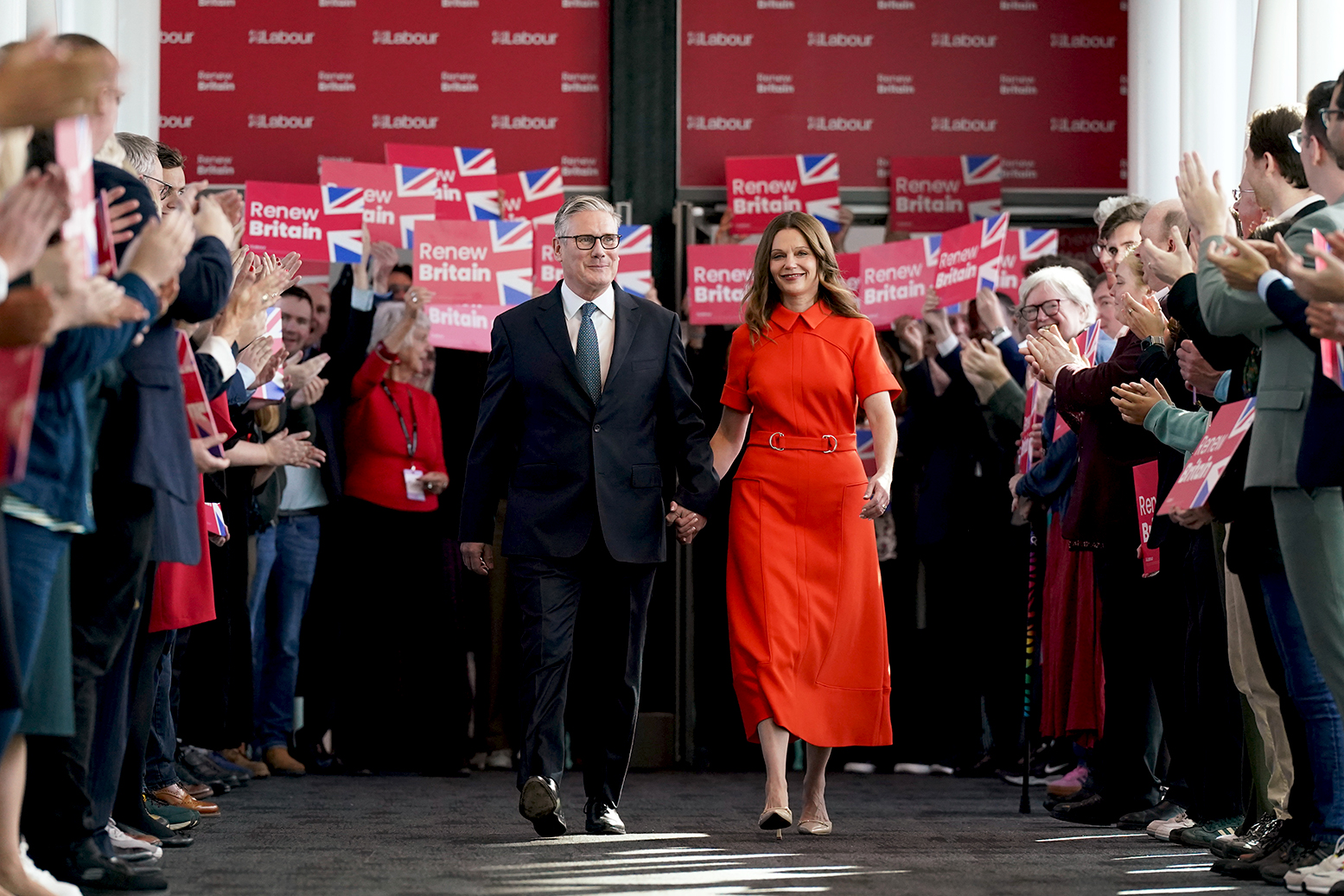By Andrew Marr
Copyright newstatesman

Labour conference, it turns out, is a wonderful place for a hack. It’s a wonderful vantage point from which to observe, firsthand, the deepest problems of British parliamentary democracy. I think we may be stuffed.
On the train to Liverpool, in the cafés, restaurants and bars around the conference and then in the centre of the city itself, perhaps four out of five people you meet are trying to make Britain a better place. They are doing reality. They are planning new towns with modular housing. They are working on deep reforms to the health and social care sectors. They are working out the details of better and more reliable energy supplies. They are planning transformations around skills in schools so that we have the builders, care workers and engineers we will still need long into the age of AI.
So you meet inspirational people. You think: the sun is flashing across the Mersey and I’m alive in a country brimming with intelligent, well-trained, dedicated Britons full of foresight and vim. It’s going to be fine.
Then you realise there is one thing that unites all of them. They need time: ten years, often 20. Making the reforms, putting in the long-term investment, developing and growing the skills, marking out and erecting the infrastructure – all these things require patient, consistent work over many years and must not be reversed or deflected. This is how mature societies evolve. The Chinese know this.
And then you think, rats (or worse), because at this point you plunge back into the shocking reality of the conference itself. We have a politics founded on almost hysterical change. There’s always another election looming, another change of minister, another sudden lurch of policy. Why would you invest billions in a new town under this Labour team if you thought they were going to be out by the summer? Or in renewable energy projects if you expect Reform to be in power in a few years’ time?
It’s mad, isn’t it? It’s as if there are two Britains: the professional one dedicated to long-term advance, a genuinely better country; and the ADHD-afflicted political Britain equally dedicated to frustrating the former. We are trying to build great superstructures of stability, the nation of the future, on endlessly churning quicksand.
You might protest that the Victorians, with their lively and disputatious parliamentary culture, seemed to manage. But Westminster back then reached far less deeply into the making-and-doing world, and anyway, it was a period of great misery and turmoil. You might ask, then, about postwar history, the Britain of Harold Macmillan and Harold Wilson and Margaret Thatcher and Tony Blair? And I might point to Britain’s industrial strife in those decades, and say: my point entirely.
This is a problem, for now, without a solution. It makes any government, of any stripe, look worse. Perhaps if Boris Johnson had had a decade in power, levelling up would have taken place. Perhaps if New Labour lasted a further decade, we would have had real devolution throughout England and effective welfare reform, and be members of the euro bloc.
Perhaps, perhaps not. Our political system is that we make huge mistakes and then reverse, halfway through them, to make different mistakes in the opposite direction. It isn’t easy to see how we escape. We might advocate changing the electoral cycle to a ten-year one but that will never happen. We might propose that big infrastructural projects, such as those inside the NHS or with new towns (a great idea, by the way), be politically guaranteed by deals between the party in power and its opponents. But, again, this is for the birds: can you imagine the net-zero secretary, Ed Miliband, and Reform’s deputy leader, Richard Tice, doing a deal on renewable power?
Back to the wild whirligig of this autumn’s conference season. The Conservatives in Manchester are a sad spectacle. A great party is horribly close to collapse – and why? In part, because it couldn’t stick to anything in power, lurching wildly from policy to policy, leader to leader, addicted to regicide and plot while investors and builders of the future gave up. Like Labour, the Tories face a leadership crisis after next May’s local elections.
The agreed story of Labour’s Liverpool conference is that Andy Burnham went too hard, too fast and foolishly dismissed the bond markets, giving Keir Starmer loyalists something to rally around. And, therefore, what had looked like a dangerous week for the Prime Minister became a triumph. But this is oversold. Burnham has not gone away, beaten, to lick his wounds. He has made pungent criticisms of the current government which will fester through the winter. He has withdrawn nothing. He is waiting and watching.
In fact, the more important clarifying moment was the emergence of Reform’s extreme deportation strategy as the great challenge for Starmer. (Nigel Farage’s party has promised to abolish migrants’ indefinite leave to remain.) This policy won’t please right-leaning Middle Britain. It’s too much. It cuts too deeply into communities, the business world and friendships.
It has given the Prime Minister an edge he hasn’t had before. We saw it in his conference speech, the clearest and most political one so far. As with the Home Secretary, Shabana Mahmood, on migration, as with Chancellor Rachel Reeves on the “further tests” and harsh economic headwinds, he was warning of a hard fight ahead: “The path of renewal, it’s long, it’s difficult, it requires decisions that are not cost-free or easy… Decisions that will not always be comfortable for our party.”
But at least, at last, there is the glimmer of a better country ahead, “a fairer country, a land of dignity and respect” at the end of the fight. This is as clear as a man who hates vision has been. Is this a moment when the centre left at long last is beginning to find its voice again?
Trouble is, a conference is only a conference. None of this erases upcoming problems around the Budget, and nor will it make the Starmer government popular anytime soon. There is a lively internal conversation going on about raising income tax. Tony Blair (now prince of Gaza) has been telling MPs that if they do this, they can kiss goodbye to the next election. But there is a strong counter-view inside the cabinet that the cumulative effect of small but individually devastating tax rises would be worse; and that taking the hit of breaking a manifesto promise and explaining why may now be the least-bad option. As one cabinet minister put it to me: “Look at the polls. Honestly, could it get any worse?”
In area after area, we see ministers, having tried everything else, moving to obvious solutions. Mahmood’s determination that migrants will need to work and pay tax, as well as learn English, to qualify for indefinite leave to remain, will strike most people as reasonable, not racist.
Digital ID cards are not, in the context of a modern world in which we give away so much of our private information, oppressive. The decision to recognise a Palestinian state was not a gift to Hamas (which wants to eradicate Israel, not a two-state solution) but the reverse. And the announcements on new towns are potentially the biggest thing to happen to housing in Britain for a generation.
Plenty of ideas. Still, plenty of energy. Starmer’s speech showed that he understands the challenge of long-term change vs short-term political hysteria. But there is persistent worry in the cabinet about the lack of a grown-up, vigorous conversation as these policies are developed and sold. When Burnham, who hasn’t proved entirely adroit himself, attacks Westminster culture, there are lots of senior figures there who privately nod. So – back to Westminster, back to politics, back to snakes and ladders. In the trade, we love it. But all around the country, would-be builders of a better future curse and feel their shoulders ache.
[Further reading: Wes Streeting is on the charm offensive]



